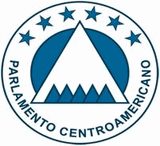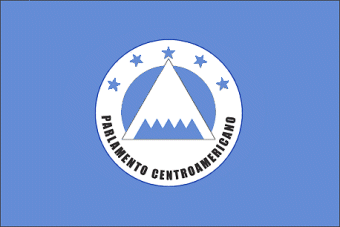Parlacen


Official web site »


Description
In the Constitutive Treaty of the Central American Parliament (commonly known as Parlacen), signed in October 1987, it is presented as an instrument “of examination, analysis and recommendation of issues of common interest…and is based on democratic representation and pluralism” (Article 1). It is composed by an equal number (20) of members per country, as well as the President and first Vice-President of each Member State after the end of their term (Article 2). Its members should be elected through elections “respecting a wide political and ideological representativeness” and “in a democratic and pluralistic system that guarantees free...elections on terms of equality” for all parties (Article 6). In terms of competencies the Parliament has consultative tasks, such as, to act as a forum of discussion on issues of regional interest, to offer impetus to the integration process and allow for further co-operation among Central American countries, to propose draft treaties and agreements among member States and to contribute in strengthening the democratic system and the respect of international law (Article 5). Still, the Parlacen retained a couple of decision-making competencies: it “elects, nominates and removes the highest executive director of the integration organisms, existing or to be created” (Article 5 paragraph c’). Also, it “examines a yearly report of activities” submitted by the regional integration institutions and reviews the “means and actions taken in view of the implementation the decisions adopted during the period under consideration” (Article 29). The Meeting of Central American Presidents and Meeting of Central American Vice-presidents” represent the interlocutors of the Parlacen and the recipients of its recommendations. The Meeting of Presidents is competent to examine any matter relating to peace, security and regional development, and to take note of the recommendations emanating from the Vice-presidents as well as the Parlacen. It takes its decisions by consensus. (Articles 23-25). The Meeting of the Vice-presidents, have also the task to examine the recommendations submitted by the Parlacen. It is worth going into a more profound analysis of the status of the Parliament as it came out of the Treaty, which embodies the contradictions of regional integration in Central America. The treaty established a directly elected regional parliament with hardly any effective power. It created a powerful symbol of regional integration but not a genuine regional legislative body: in this way, the Central American states retracted from their previous determination to build a regional institution based on popular legitimacy. The weakening of the Parliament was aggravated by the absence of any coherent regional integration institutional framework: the Parliament thus set up had to coexist, in parallel, with various other regional integration schemes (not only the institutions of the CACM. which formally still existed, but also several other sectoral and technical regional instruments). This overlapping further limited the institutional base and the involvement potential of the Parliament (Sanchez Olga M., Rojas Delgado Jaime, (comp.), Una contribución al debate. Integración regional, San José, Costa Rica, FLACSO - UNA Faculdad de ciencias sociales, 1993, p. 449). To make matters worse, the ratification process was thwarted by national resistance, stemming essentially from Costa Rica: as the only democratic state in the region, a large part of the political elite and public opinion in Costa Rica rejected attempts to grant supranational powers to an institution whose majority belonged to less-than-democratic countries (Varela Quirós Luis A., El proyecto de Parlamento Centroamericano: un analisis desde la perspectiva histórica, constitucional y electoral costaricense”, in “Revista de Relaciones internacionales”, School of international relations. University of Heredia, Costa Rica., No 31, 1990, pp. 45-56). As a result of the internal controversies on the country's participation in the Parliament, ratification was blocked for more than two years. As a way out of this impasse, Member States adopted a Protocol to the Treaty that "froze" all remaining decision-making powers of the Parlacen in exchange for the possibility to allow it to operate without ratification by all countries. Subsequently and after elections were held in Guatemala, Salvador and Honduras, this rump Parliament was installed on October 28, 1991. The Protocol integrated in the regional legal order the Central American Parliament, acting as an organ for exposition, analysis and recommendation – identical to the functions it holds according to the Constitutive Treaty.
A new role for Parlacen
From the start of its existence – but in a more pronounced way at the end of the 1990s - the Parlacen has tried to become a focal point of regional integration. By the end of this decade, it had partly succeeded in acquiring a new vitality. Several factors contributed to this development. As mentioned above, Panama ratified the Constitutive treaty and nominated its first parliamentarians in 1997. Nicaragua also proceeded to the election of its first parliamentarians on October 1996. The Dominican Republic joined it in 2004 as did Belize. However Belize, neither has proceeded to directly elect its representatives and it only appoints 2 observers while the President of the Dominican Republic designates 20 members. Also, the Parlacen cultivated its relations with the European Parliament, all too content to cooperate with the only other directly-elected regional body.
This new impetus did not only increase substantially the number of its MPs (from the initial 60 to currently 120), but also their representativity. In the early days of the Parlacen, its MPs were essentially representing centre- and right-wing parties; they were often second-rate national politicians in search of a sinecure on the way to retirement. The normalisation of the political situation in Salvador and the Nicaraguan participation in Parlacen increased the number of left-wing MPs (and also of women due to the gender policy of the FSLN), and made the debates more lively, interesting and passionate. The press started reporting on debates in the Parlacen and the integration institutions hold regular meetings with its thematic committees, while governments meet their national MPs in Parlacen. At the same time, the supranational way of running political activity within the Parlacen had important consequences for political parties. As it the European Parliament, its members are divided by political groups rather than by national delegations. Parties from the different Member States which beforehand had no contact whatsoever between them were, hence, obliged to meet and cooperate on various issues of regional interest as never before. The forum of the Parlacen encouraged relations among political parties of the same country. The consensual way it tended to treat issues at stake and the fact that most parties, be it left- or right-wing, held broadly similar opinions on the process of regional integration eased off tensions between them and permitted them to reach out to each other more readily than at national level. Cross-border co-operation between parties on similar issues was thus promoted outside the Parlacen as well. The alliance with national parties has been fostered in other ways, as well.
Since 1992, the Parlacen organises annual thematic conferences of all Central American parties, bringing them together on matters that include issues of regional interest, mainly dealing with the deepening of political union, but covering more practical issues, as well (for instance, the Central American citizenship or the role of indigenous populations). These meetings, far from being simple social activities, constitute a privileged means of action of the Parlacen and a central moment for the international relations of political parties, often represented there by their leaders in person.
The civil society has been the other target of the Parlacen's campaign to expand its role and enlarge the spectrum of integration. Even more than political society, civil society was completely excluded from the regional integration process. Certainly, the general political situation of Central American countries did not make easy for civil society to exist, in the first place, much less to intervene in a process considered primarily of being competency of the executive. The creation of the Consultative Committee of the SICA that brought together a series of non-governmental organisations and platforms allowed, for the first time, to these non-state actors to have a saying, be it a consultative one, over the developments in regional integration. The Parlacen snatched this opportunity and multiplied its contacts with various local, national and regional organisations and movements with the objective both to recall the existence of the Parliament to them and to take into account their needs and demands. These contacts were useful: in the past civil society, especially those movements that challenged the governments in place, tended to reject all expressions of organised political life and considered that the Parlacen was nothing more than a group of highly-remunerated establishment politicians, completely detached from the real needs of the people. The permanent relations thus created broke, little by little, this diffidence and permitted to both sides to find common ground for discussions as well as to determine their adversaries and act together on various cases.
Finally, one should not underestimate the work done by Parlacen in order to reach out to the national Parliaments. Aware of the potential danger that represents a quarrel with the national legislative bodies over the roles and competencies of each level, the Parlacen tried to prevent it by embarking on a strong co-operation with national Parliaments: the objective was, once again, to demonstrate that a struggle between the legislative organs on the legislative control of integration is useless as long as governments rule over the integration process and to co-ordinate activities so as to facilitate exchange of opinions and information between Parlacen and national Parliaments on integration issues. Such privileged relationship has been useful to the Parlacen at various critical moments of its existence, such as the attempt to relegate it to an indirectly-elected body with the Panama proposals as well as the recent decision of Panama to withdraw from it. As such, the two levels hold regular meetings and the specialised committees on regional integration, that have been created in all national Parliaments work in close co-ordination with the committees of the Parlacen.
These activities allowed the Parlacen to become actively and aggressively involved in the debate on integration when, after 1995, its specific features came under attack during the attempts to reform and remodel the wider institutional machinery of the SICA. It resisted the proposals put forward by the authors of the BID-CEPAL analysis to relegate it to an indirect assembly and counter-attacked by presenting its own vision of regional integration. In a draft Protocol adopted by Parlacen in 1998, it requested a substantial increase of its powers, in particular the right to vote the budget of the SICA, to control its implementation and to be consulted over all treaties and agreements, to be approved by Member States, that concern regional integration. In addition, the Parlacen submitted to the Meeting of the Presidents, drafted on the wake of the BID-CEPAL reform proposals, a draft text on a Treaty of the Union that radically modified the regional integration framework, with a complete description of the structure and tasks of a future Central American Union. This text of a clearly constitutional character was, in fact, approved by the seventh conference of Central American political parties in San Salvador, in September 1998. Still, as with all other institutional reform proposals, this one too failed to materialize.
